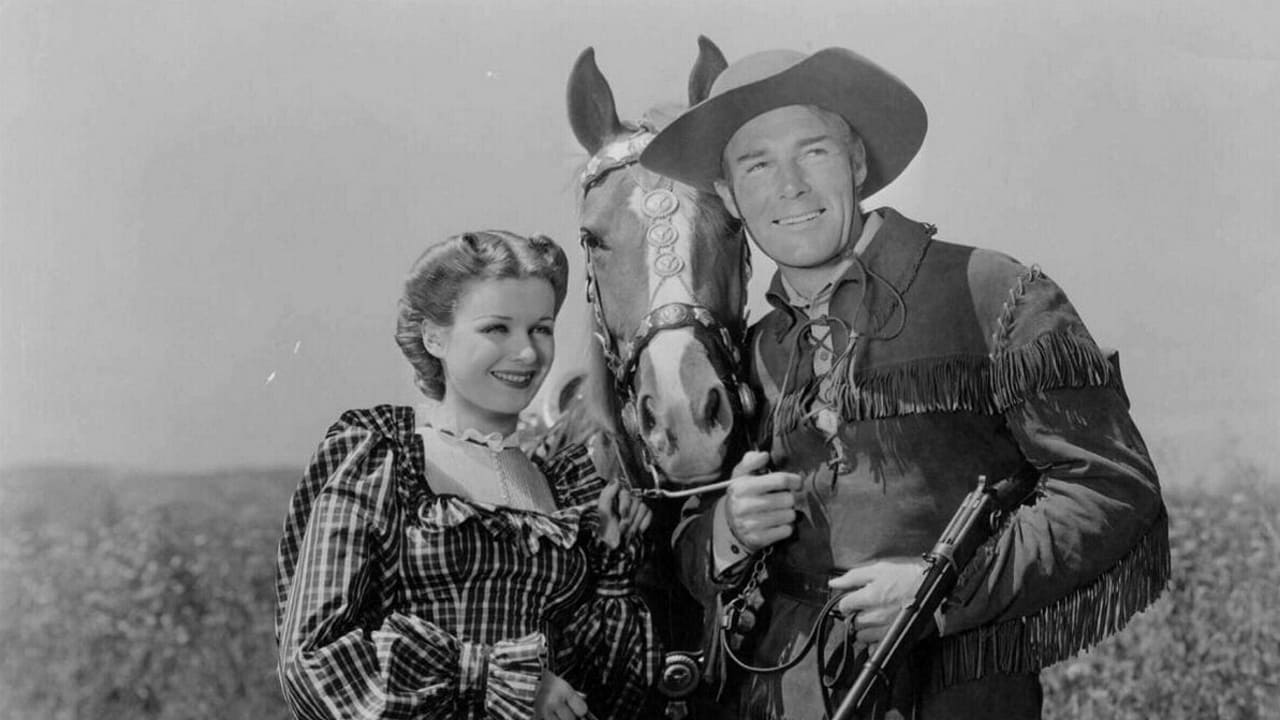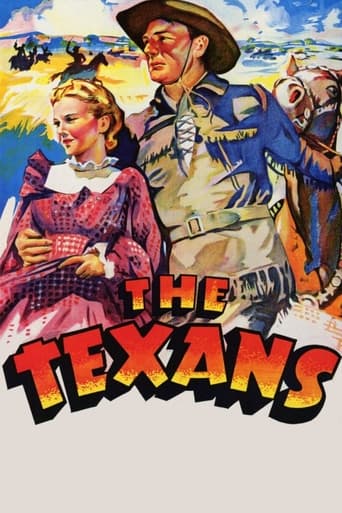



Instead, you get a movie that's enjoyable enough, but leaves you feeling like it could have been much, much more.
View MoreIt's an amazing and heartbreaking story.
It’s not bad or unwatchable but despite the amplitude of the spectacle, the end result is underwhelming.
View MoreIt is interesting even when nothing much happens, which is for most of its 3-hour running time. Read full review
View MoreWith the U.S. Calvary on his tail, ex-Confederate Randolph Scott braves the elements and leads a massive cattle drive through Indian territory in order for his hard-case employer (and potential sweetheart) Joan Bennett to avoid paying the nasty carpetbagger government's new cattle tax.The first thirty minutes of the film, with it's blistering portrait of reconstruction, is so grimy and claustrophobic that it comes as a bit of a relief when Scott and the boys (and the girls) hit the trail. In fact, they lay it on so thick that Randolph Scott's character comes off a bit silly when he voices his support for a reunified country!Some slow spots help keep this from being one of the best of Scott's early Paramount vehicles. However it's probably one of the best produced, with some excellent photography and really well-staged action sequences. The scenes depicting the crossing of the Rio Grande and their battles with angry Comanches are particular standouts.The end is a bit of a forerunner to Red River!
View More"The south was ruled as a conquered enemy. Northern politicians wallowed in an orgy of power--of plunder by organized mobs--of tribute and tyranny and death." This is taken from the prologue to this film. From the early 20th century until about 1960, there was a revisionist view of the Reconstruction years in which the Southerners were all portrayed as victims of evil Yankees and 'uppity' blacks! It turns out that this really is NOT what this era was like but it sure dominated films from "Birth of a Nation" (1915) through "Gallant Legion" (1948)--see David Blight and Eric Foner as well as the Nebraska Partnership for American History Education for more information about this). "The Texans" carries on this tradition of carpetbaggers (Northerners whose sole aims are to get rich and mistreat the Southerners) and scallywags (Southernerswho would betray their neighbors by working with the evil carpetbaggers).The film begins with the Yankee soldiers doing all kinds of injustices to Southerners. Randolph Scott, Walter Brennan and the other good guys are all ex-Confederate soldiers who can only look on in horror as the occupying Northern soldiers do their worst. However, Joan Bennett (sporting blonde hair as she did early in her career) and May Robson have an idea--to sell guns to their Southern friends, hide cattle from greedy Northern tax collectors and sow discord against evil Yankee oppression. While completely wrong, at least this film doesn't credit the wonderful KKK with being heroes of the post-war South (like in "Birth of a Nation"!)! During this portion of the film, oddly, Randolph Scott seems to be strangely absent from the plot. He's there but doesn't do a whole lot. Later, however, he's a little more obvious in the film and convinces a group of angry ex-Confederates to relocate to Abilene--and to get away from the repressive Yanks. After a long and arduous journey through Indian attacks and a pursuit by carpetbaggers intent on jailing the lot on trumped up charges, they arrive in Abilene at the exact perfect time. And, everyone lives happily ever after.As far as this film goes, with so many westerns like it, it didn't do a whole lot to stand out from the crowd. Heck, even Randolph Scott made at least one other film with the same plot idea ("Thunder Over the Plains"). In addition, Errol Flynn and several other actors have made similar films--it was an awfully familiar theme. While I am a huge fan of Randolph Scott westerns, this one is amazingly ordinary despite some nice scenes and acting here and there and is far from being a must-see film. If you do watch it, just don't think it's in any way a history lesson!
View MoreSome of today's viewers might be a bit put off by what they see as racism in the beginning. Just remember not to judge other times by the current time in which you dwell. Black Union soldiers did make themselves unwelcome in post Civil War South. Carpetbaggers did go to the South to take advantage. The South WAS desperately poor after the war and unfair taxes were levied. These are historical facts which do not take sides. The writer took the facts and the attitudes, of both sides, and wove them into this story. Randolph Scott as a former Confederate who wanted the country reunited instead of taken over by Mexico. He said that all Yankees were not like the ones pushing their way around Texas, as he had met them in the war. The Union officer felt the same about many former Confederates. The movie showed this as the beginning of understanding between former foes. The acting was good. Perhaps one of Scott's better performances. Mae Robson was great and reminded me of Beula Bondi. Robert Cummings (well before his TV successes) was the former Confederate officer who could not accept the loss of the war. Joan Bennett was beautiful as the center of the love triangle between Scott, Cummings and herself. Character actors brought the film along quite well as they often do - Walter Brennan, Raymond Hatton, Frances Ford, Robert Barrat, Harvey Stephens. And there was Richard Denning with a small speaking part before his Mr. North fame. There was a most believable fight scene in the streets between Union troops and former confederates. It was well directed. There was an action scene of wagons, horses and cattle running from brush fire set by Indians that was very well done considering this was before digital special effects. The movie moved along nicely from the very beginning with plenty of Western excitement. Be sure to catch this Western if you get the chance. Although it has some twists and turns, it is still a good old fashioned Western.
View MoreI don't know if this movie was based on a true story, but it is believable, in that it was quite likely that there were mixed loyalties after the Civil War; some wanted to continue the fight, and some that wanted to put it behind them. I've seen plenty of movies where the Confederates are portrayed as bitter sore losers. This is the first time I've seen a movie with the Rebs trying to abide by the new rules, while being persecuted at the same time. Quite believable.
View More